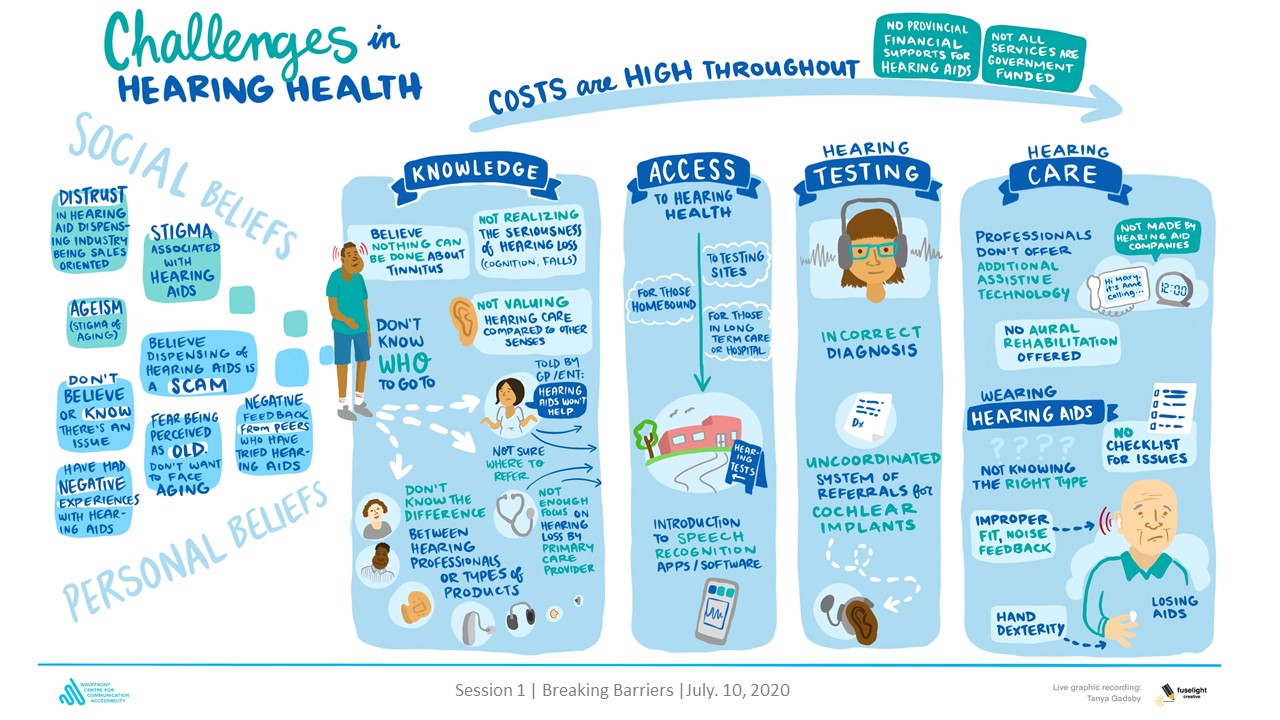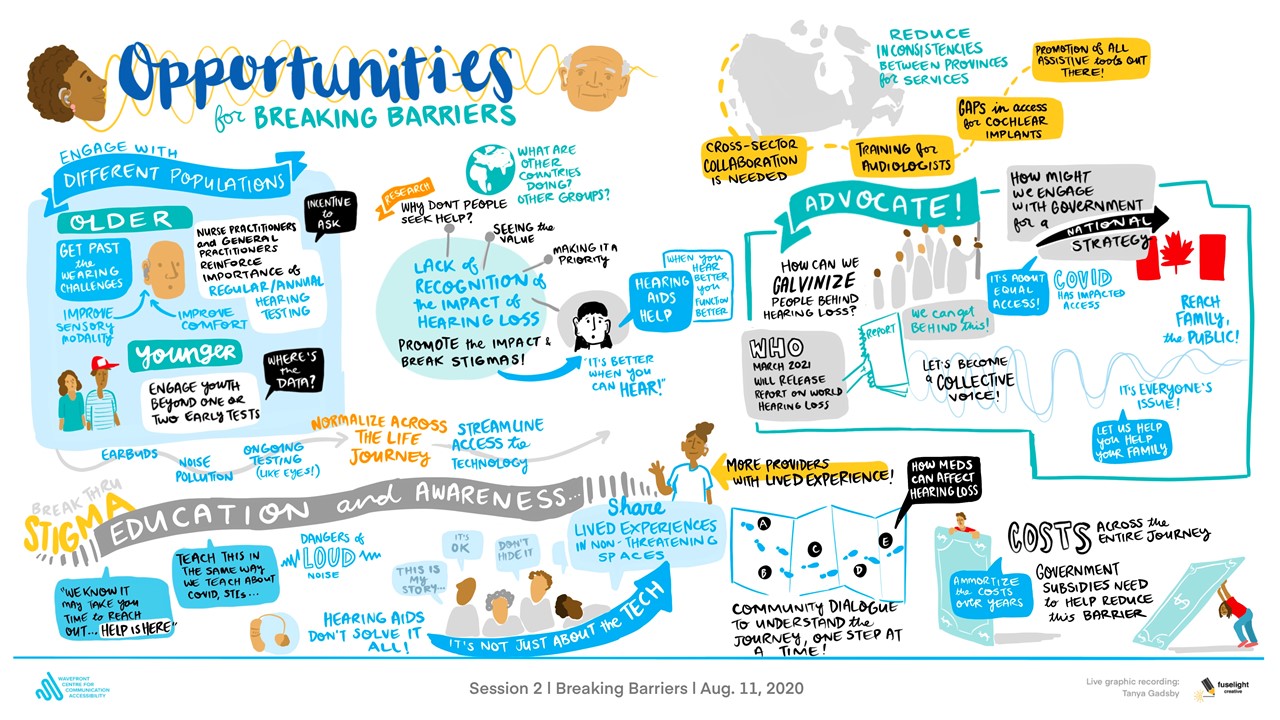
Breaking Barriers: Empowering Primary Care Providers to be Instigators of Change in Hearing Health Care Practice
-
Year 2021Type Match Funding
- Principal investigator Lorienne Jenstad
- Host institution University of British Columbia
- Research location University of British Columbia
Health Research BC is providing match funds for this research project, which is funded by the Vancouver Foundation’s Participatory Action Research Investigate Grant.
Up to 65% of adults in British Columbia (BC) aged 60+ will develop hearing loss. Fewer than one-quarter of these adults use hearing health care, with most delaying treatment 7 to 10 years on average. Untreated hearing loss affects health-related quality of life with links to social isolation, depression, greater risk of falls, and reduced financial security. For adults with concerns about their hearing, primary care providers (PCPs) are often a first point of contact for help seeking, and yet for reasons that remain unclear, PCP referrals to hearing health care are inconsistently and infrequently practiced. This problem was identified as a top priority through focus groups conducted in 2020. These graphics illustrate the focus group discussions that led to the development of this research question.


We will use a community-based approach to identify reasons for lack of referral and develop strategies that empower primary care providers to be key instigators for increased, timely uptake of hearing health care by individuals with hearing concerns.
The research team, all based in BC, is led by Lorienne Jenstad, PhD, an audiologist and associate professor at the University of British Columbia; Brenda Poon, PhD, the research program lead at the Wavefront Centre for Communication Accessibility; and Ruth Warick, PhD, president of the Canadian Hard of Hearing Association, Vancouver Branch. The team works closely with other individuals who have lived experience of hearing loss, physicians, nurses, clinical audiologists, and community organizations.
Ultimately we hope that primary care providers and the general public will have better recognition of the importance of hearing health and better understanding of the process to receive hearing health services, leading to timely uptake of hearing health care by individuals with hearing concerns and the potential to improve long-term health outcomes.
